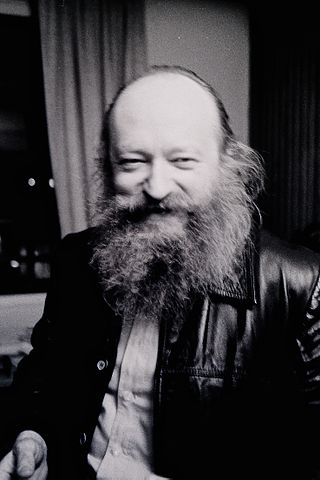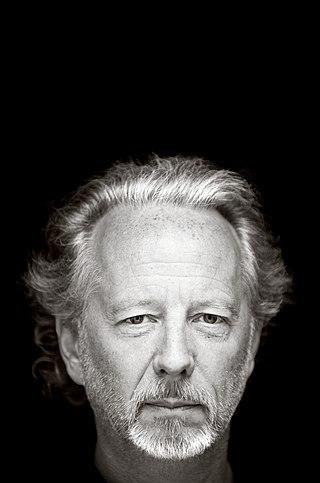The Fernand Collin Prize for Law (Dutch: Fernand Collin-prijs voor Recht) was named after Fernand Collin. It is awarded to a scientist who makes a significant Dutch-language contribution to law in Belgium. In 1972 it was awarded to an economist. Beginning in 2023, the prize is awarded for Dutch-language works in even years, and for English-language works in odd years.

The Flemish Diamond is the Flemish reference to a network of four metropolitan areas in Belgium, three of which are in the central provinces of Flanders, together with the Brussels-Capital Region. It consists of four agglomerations which form the four corners of an abstract diamond shape: Brussels, Ghent, Antwerp and Leuven.
Nova Civitas was a Flemish think tank based on the principles of classic liberalism in combination with Anglo-Saxon conservatism. Nova Civitas claimed at its founding to be completely independent, although it was recognized and supported by the Flemish Liberal Party (VLD). The Founding Chairman of Nova Civitas, Boudewijn Bouckaert, was a long-time board member of the VLD.
According to their website, the basic principles of Nova Civitas were:

Leo Apostel was a Belgian philosopher and professor at the Vrije Universiteit Brussel and Ghent University. Apostel was an advocate of interdisciplinary research and the bridging of the gap between exact science and humanities.

VIB is a research institute located in Flanders, Belgium. It was founded by the Flemish government in 1995, and became a full-fledged institute on 1 January 1996. The main objective of VIB is to strengthen the excellence of Flemish life sciences research and to turn the results into new economic growth. VIB spends almost 80% of its budget on research activities, while almost 12% is spent on technology transfer activities and stimulating the creation of new businesses, in addition VIB spends approximately 2% on socio-economic activities. VIB is member of EU-LIFE, an alliance of leading life sciences research centres in Europe.
The education in the Flemish Community covers the Dutch-speaking part of Belgium and consists of three networks (netten): government-provided education (gemeenschapsonderwijs), subsidized public schools and subsidized free schools.

Stefan Hertmans is a Flemish Belgian writer. He was head of a study centre at University College Ghent and affiliated researcher of the Ghent University. He won the Ferdinand Bordewijk Prijs in 2002 for the novel Als op de eerste dag.
Science and technology in Flanders, being the Flemish Community and more specifically the northern region of Belgium (Europe), is well developed with the presence of several universities and research institutes. These are strongly spread over all Flemish cities, from Kortrijk and Bruges in the Western side, over Ghent as a major university center alongside Antwerp, Brussels and Leuven to Hasselt and Diepenbeek in the Eastern side.

Kristien Hemmerechts is a Belgian writer.

Ferdinand Van der Auwera, pseudonym Fernand Auwera was a Belgian writer. His fragile health during his youth and its impact on his life (solitude), had an effect on his first literary work.

Paul Claes is a Flemish scholar, writer, poet and translator.

Henri Maria Dymphna André Laurent "Rik" Torfs is a Belgian canon law scholar and media personality. He is a former Senator for the Christian Democratic and Flemish party in the Belgian Federal Parliament and a former Rector of the Catholic University of Leuven.
Robert Alphonse Paul (Bob) Van Straelen is a Belgian economist and organizational theorist, and Emeritus Professor at the Antwerp Management School, known for his work on large empirical macroeconomic models.
The Perpetual Edict of 12 July 1611 was a decree of the Archdukes Albert and Isabella governing legal process in the Southern Netherlands. It consisted of 47 clauses laying out the basic rules of criminal and civil procedure. It was printed in both Dutch and French by Rutger Velpius, printer to the court. The edict had a fundamental impact on the codification of customary law, which it did much to encourage. It also placed a legal obligation on parish churches to register births, marriages and deaths, and on local magistrates to ensure that the secular authorities obtained a copy of such registers each year.

This is a timeline of Belgian history, including important legal and territorial changes and political events in Belgium and its predecessor states. To read about the background to these events, see History of Belgium. See also the list of Belgian monarchs.
Johannes "Jos" Silvis is a Dutch law professor and judge. He was a judge at the European Court of Human Rights from 1 November 2012 through 1 September 2016. He subsequently became attorney general at the Supreme Court of the Netherlands.
Walter, Baron Van Gerven was a Belgian lawyer and law professor. He served as Advocate General on the European Court of Justice between 1988 and 1994. He was professor of European law at the Katholieke Universiteit Leuven.
Randall Christoph Herman Lesaffer is a Belgian historian of international law. He has been professor of legal history at KU Leuven since 1998 and at Tilburg University since 1999, where he also served as dean of Tilburg Law School from 2008 to 2012. He currently serves as the head of the Department of Roman Law and Legal History at the Faculty of Law and Criminology at KU Leuven. His work focuses on the Early Modern Age.
Richard Hubertus Lauwaars is a Dutch jurist. He was a professor of law of European organizations at Vrije Universiteit Amsterdam from 1972 and 1979. He subsequently was professor of law of international organizations at the University of Amsterdam from 1980 to 1994. Lauwaars then was member of the Council of State between 1994 and 2008, serving the last three years in extraordinary service.